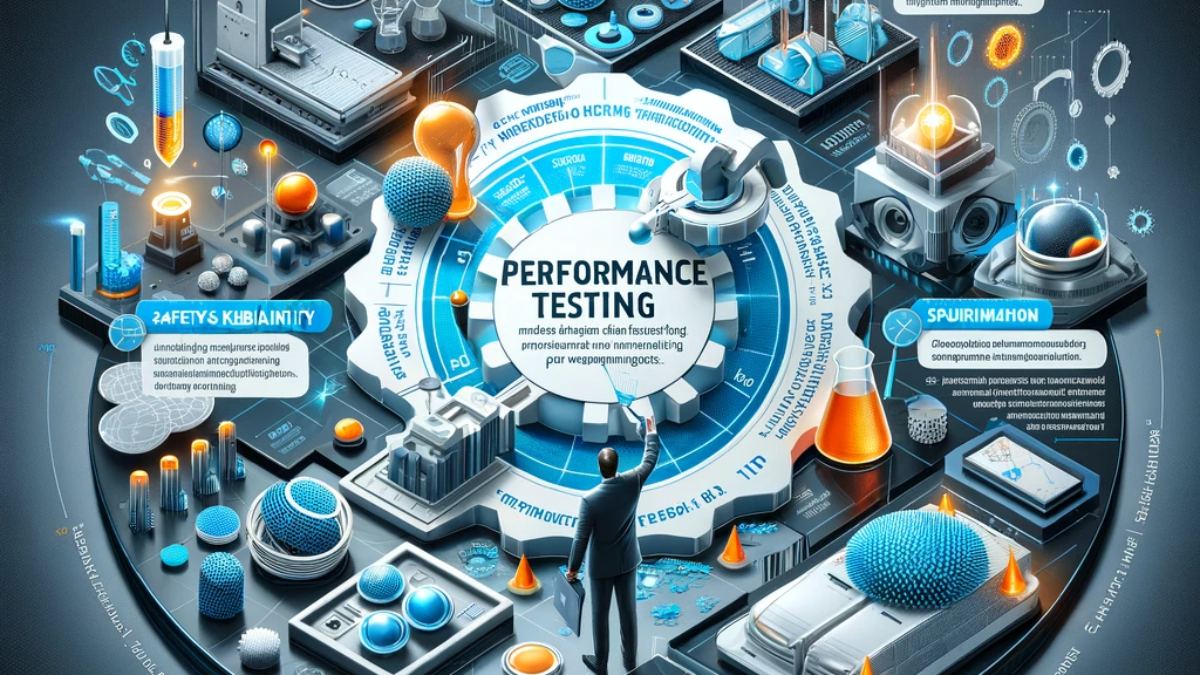Advancing Material Innovation: The Crucial Role of Performance Testing in Material Science
The relentless pursuit of innovation within the materials science sector underscores the transformative potential of new materials in reshaping industries, from aerospace to consumer electronics and beyond. Performance testing, a critical component of materials research and development, ensures that these innovative materials not only promise revolutionary properties but also deliver on those promises under real-world conditions. This blog post explores the importance, methodologies, and best practices of performance testing in materials science, offering insights into its pivotal role in driving forward technological and scientific breakthroughs.

Why Performance Testing Matters in Materials Science
In the realm of materials science, performance testing is essential for several key reasons:
- Verifying Material Properties: Testing validates the theoretical properties of new materials, such as strength, durability, and conductivity, ensuring they perform as expected in practical applications.
- Safety and Reliability: Materials intended for use in critical applications, such as in medical devices or structural engineering, must undergo rigorous testing to ensure they can safely withstand operational stresses and environmental conditions.
- Innovation and Optimization: Performance testing provides invaluable data that can spur further innovation, allowing scientists and engineers to refine material compositions and processing methods to achieve optimal performance.
Strategies for Effective Performance Testing in Materials Science
- Comprehensive Test Design: Develop a testing strategy that covers the full range of material properties of interest, from mechanical strength and flexibility to thermal resistance and electrical conductivity.
- Realistic Simulation of Conditions: Ensure that testing scenarios accurately reflect the conditions under which the material will be used, including environmental exposures and mechanical loads.
- Advanced Testing Technologies: Utilize the latest in testing technology, such as high-resolution imaging, spectroscopy, and computer simulations, to analyze material performance at the micro and nano scales.
- Iterative Testing and Analysis: Adopt an iterative approach to testing, using the results of initial tests to refine hypotheses and testing protocols, thereby optimizing material properties through successive iterations.
- Cross-disciplinary Collaboration: Engage in collaborative efforts across disciplines, combining insights from chemistry, physics, engineering, and industry-specific knowledge to enhance testing methodologies and material applications.
Overcoming Challenges in Materials Science Performance Testing
Performance testing in materials science faces challenges such as the high cost of advanced testing equipment, the complexity of simulating real-world conditions, and the need for specialized expertise to interpret test results. Overcoming these challenges requires a strategic approach, including investment in state-of-the-art facilities, fostering collaboration among academic and industrial partners, and continuous training for research and development teams.
Conclusion
The role of performance testing in materials science cannot be overstated. It is the linchpin that connects theoretical material innovations with practical, reliable applications, ensuring that new materials can meet the demands of tomorrow’s technologies. As we continue to push the boundaries of what materials can achieve, rigorous and innovative performance testing will remain a cornerstone of material science research and development.
Partner with Kiyo R&D for Cutting-edge Material Performance Testing
Kiyo R&D Center & Laboratory stands at the forefront of material science research, offering comprehensive performance testing services that help bridge the gap between theoretical innovation and practical application. With our advanced testing facilities and expert team, we are dedicated to supporting the development of next-generation materials that will define the future of technology. Discover how partnering with Kiyo R&D can accelerate your material innovation journey.

